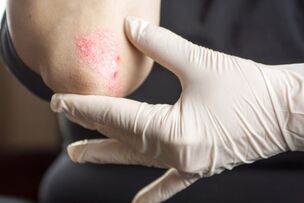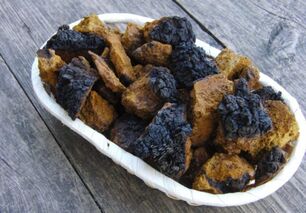Medication alone is not enough to cure psoriasis in all parts of the body. Only through comprehensive methods can the greatest results be obtained. Therefore, you need to understand all possible ways to treat skin diseases.
Principles of treatment of psoriasis
Before you start fighting psoriasis, you need to consider that it cannot be cured. Treatment aims to eliminate symptoms, restore the body's protective function and establish stable clinical relief.

The treatment principles include the following aspects:
- Medication;
- Physiotherapy (used in combination with other forms of treatment);
- Unconventional alternative treatment;
- Traditional medicine.
When treating psoriasis, it is important to consider the individual characteristics of each organism. A treatment that works for one patient is not always effective for another patient. Every patient diagnosed with psoriasis needs careful and thoughtful treatment and special attention.
Drug treatment of psoriasis
External facilities
Topical preparations are used to eliminate inflammation, itching, swelling and other symptoms of psoriasis. These include:
- ointment;
- cream;
- lotion;
- spray;
- Gel.
This funding should be used for mild and moderate forms of disease. In most cases, severe forms of these drugs are used in combination with other powerful drugs. In this case, the doctor must determine the severity of the disease and take into account the individual tolerance of the specific drug. External therapy can be used for patients of any age.
In medical practice, ointments and creams are widely used, divided into hormones and non-hormonal. It is best to use non-hormonal drugs because they have no side effects. However, in some cases, such drugs cannot fight disease. Hormonal drugs should then be used, which will do the following:
- is used purposefully, only acting on lesions;
- Ointment can stop the development and spread of lesions;
- Penetrates into the deep layers of the epidermis;
- Eliminate itching and peeling;
- Relieve symptoms of allergic reactions.
For treatment, glucocorticoid drugs are also used, these drugs have the following characteristics:
- Eliminate inflammation process;
- Eliminate itching and peeling;
- slows down the process of cell division.
Steroids can have powerful effects at the same time. In severe forms of psoriasis, strong drugs-soft drugs should be prescribed in the mild course. Topical corticosteroid therapy includes:
- Hydrocortisone acetate. The ointment is applied to the skin surface in a thin layer. The course of treatment is 6 to 14 days. If this is not enough, the course will be extended to three weeks.
- Fluocinolone. It is used in all stages of psoriasis. In the case of mild and moderate severity of the disease process, it is used as the main therapy, in the case of severe forms-as an auxiliary therapy.
- Prednisolone ointment. The course of treatment is 2 weeks. Spread evenly on the inflamed area only. Bandages are not recommended.
Unfortunately, although the use of hormone medications is effective, the use of hormones may cause side effects. Not only do they have a strong effect on the epidermis, the epidermis will then become discolored and thinner, and there is a risk of recurring disease when using them. When treated with hormones, addiction to drugs can occur, and other methods are not helpful. Due to the duration of steroid use, muscle weakness, blood pressure and weight loss, and loss of appetite can occur. Steroid drugs are sold in pharmacies without a prescription, and long-term use is not recommended.
The pharmaceutical industry has a variety of hormone-free treatments for psoriasis, which can combat symptoms well without harming the body.
All non-hormonal drugs are divided into several categories:
ointments (they contain no active ingredients).
Salicylic acid ointment. It has anti-inflammatory and antibacterial effects, softens the skin, and accelerates the exfoliation process of the stratum corneum. The ointment contains salicylic acid, which can quickly remove the affected area. The ointment should be used point by point, because allergies may occur.
Zinc ointment. The bactericide has drying and protective effects and can relieve inflammation. The composition includes zinc oxide. Do not want to use the ointment for more than 30 days, because it may have an addictive effect.
Zinc pyrithione. The drug is based on zinc pyrithione, which can respond well to the inflammatory process and has antibacterial and antifungal effects.
- Tar ointment. Preparations include pine and birch tar. These include anthracene sulfonic acid, anthraamine ointment and colloidal protein, which can relieve inflammation, restore damaged skin and have a disinfectant effect. Tar-containing ointments should start with small doses. If an allergic reaction does not occur, the dose can be increased.
- Ointment containing grease. These ointments are considered to be the most effective non-hormonal drugs.
- Ointment containing vitamins. Retinol palmitate. Ointment containing vitamin A. It has a healing effect and can restore and normalize the metabolic process in the tissue. Calcipotriol containing vitamin D has an inhibitory effect on stratified epithelial cells (keratinocytes). Cannot be combined with salicylic acid ointment.
- Oil-containing products. Naphthalene ointment. The composition of the ointment contains naftalan oil-a substance with a very unpleasant smell but a unique effect. Promote the rapid recovery of the skin, with antibacterial, anti-itch and absorption effects.
Oral medication
One way to relieve symptoms of disease is to use pills in the form of pills. It is this tablet that can provide the body with the necessary ingredients. Pill therapy is much more effective than topical medication. Taking into account the patient's age and physiological characteristics, tablets can only be prescribed by a doctor. Psoriasis drugs are divided into two groups:
- Hormone-the most effective means, using it can make you get positive results in a short time, but it will cause many side effects;
- Non-hormonal-play the function of supplementing the role of essential drugs.
The onset of psoriasis is caused by internal causes, which are the reasons for the violation of metabolic processes in the body.
Therefore, you need to turn to stronger drugs:
- Methotrexate. A tablet that can significantly slow down the process of cell division. It is suitable for pustular and erythrodermic psoriasis. It is widely used to treat psoriatic arthritis. However, it has many side effects.
- Sodium meglumine succinate. A new generation of drugs with a wide range of effects. For severe psoriasis, only for prescription.
Alternative treatment methods
Drug-free methods and methods are used as alternative methods. Recommended:
- Visit hot springs;
- Take Garra Rufa fish skin (fish scale therapy);
- Receive therapeutic mud treatment;
- Freshwater spa;
- Plasma exchange;
- Massage courses.
However, these methods are only effective when combined with traditional therapies.
Physical therapy for psoriasis
Physical therapy is an important part of psoriasis treatment. In the initial stage of the disease, physical therapy cannot be used. When the symptoms of the disease are relieved, these methods are used and carried out in the hospital.
Physical exposure methods include:
- Ultraviolet radiation;
- puva treatment;
- Ultrasound application;
- Laser treatment;
- Laser chemotherapy;
- Magnetic therapy (applying static magnetic field);
- exposure to cold (cryotherapy);
- Electronic sleep;
- X-ray treatment.
Diet therapy for psoriasis
Diet plays an important role in the treatment of psoriasis. Therefore, it is necessary to know what food should constitute the patient's diet. Proper nutrition can restore bowel function, help relieve pain symptoms, strengthen the immune system, and protect the body from new relapses.

List of products that have a negative impact on the condition of skin and hair:
- Smoked and preserved food. The ingredients contained in the product affect the function of the digestive tract and may have a negative impact on the condition of the epidermis.
- Citrus fruits. A large amount of essential oils are found in the colored peels (skins) of fruits. Therefore, the juice produced by industrial methods can have a negative impact on the patient's condition.
- Nuts. They are strong allergens.
- Fatty food.
- Alcoholic beverages. They disrupt the work of the liver, which cannot cope with the work of purifying the blood from toxic substances, which adversely affects the condition of the dermis.
- Chocolate and products containing cocoa are powerful allergens.
- Products with high dye content.
The psoriasis diet must include:
- Vegetables and fruits;
- Cereal;
- Dairy products;
- fish;
- Chicken;
- Green.
Psoriasis requires drinking a lot of fluids. You need to drink up to two liters of water a day.
Traditional medical recipes for psoriasis
Psoriasis can be effectively treated with traditional medicine. It can be a homemade product used internally:
- medicinal decoctions and infusions;
- Tablets and powders;
- means there are many components.
Linseed infusion. Help clean the body of toxic substances and slow down the development of diseases. Pour 20 grams of seeds into a thermos and pour boiling water (250 ml). Drink activated charcoal (2 tablets) before going to bed. In the morning on an empty stomach, drink a dose, eat seeds.
Bay leaf soup. Effective for the first symptoms of psoriasis. Pour boiling water on the chopped bay leaves. Cool and filter.
Chaga birch mushrooms. The active ingredients contained in Chaga can restore the condition of the epidermis. Pour mushrooms (100 g) into hot water (1 l) overnight. In the morning, use a blender to grind the mushrooms into a mixture with a density similar to gruel. Adjust the broth to 40 degrees and add the chopped mushrooms. Persist for three days.

For external use:
- Self-made ointment;
- Shampoo;
- A collection of herbs.
For more effective treatment, ointment should be applied to the affected part of the body.
Propolis ointment. Grind 20 grams of propolis and add 350 grams of butter. Heat in a water bath. strain. Suitable for plaque location. Store in the refrigerator.
Birch bud ointment. Grind birch buds (100 grams). Mix with tar (180g) and ash (50g). Stir until smooth. Rub it into the affected area and wrap it in plastic wrap.
Home therapy baths can also be used for psoriasis. Mix the thread and celandine (100 grams each) and pour three liters of water. Dissolve sea salt. Let it brew for an hour. Pour into warm bath water.
Blue clay can be used in combination with sea salt for treatment. After taking a shower, the skin becomes very soft.
Effective treatment methods
The treatment of elbow psoriasis should be complicated, including the following:
- Take vitamins;
- Diet;
- External treatment;
- Physiotherapy;
- Light therapy.
Topical medicines (ointments, creams) are used to treat knee diseases. Perhaps sedatives and antihistamines are used for complex treatments. If there is heavy bleeding, anti-inflammatory drugs should be prescribed.
Treating psoriasis on the palms and feet is very problematic. This is mainly caused by the constant stimulation of these parts by friction with clothes and frequent washing. If the use of external medications does not yield positive results, ultraviolet radiation should be prescribed.

Treatment of psoriasis during remission
After the remission period begins, all recommendations must be followed to maintain this condition and prevent the disease from recurring. To prevent prolonged psoriasis, you need to consider the following issues:
- You cannot interrupt the treatment, but you can continue to take prescription drugs.
- Do not use new drugs other than prescription drugs.
- It is necessary to eliminate the symptoms of infectious diseases in time.
- During remission, please try not to harm your skin.
- Avoid neurasthenia.
- Don't overuse sunbathing.
- Avoid contact with chemical substances.
- Try to wear only natural materials.
- Pay attention to skin care.
During this period, all recommended methods and means should be used to prevent the further development of the disease.























